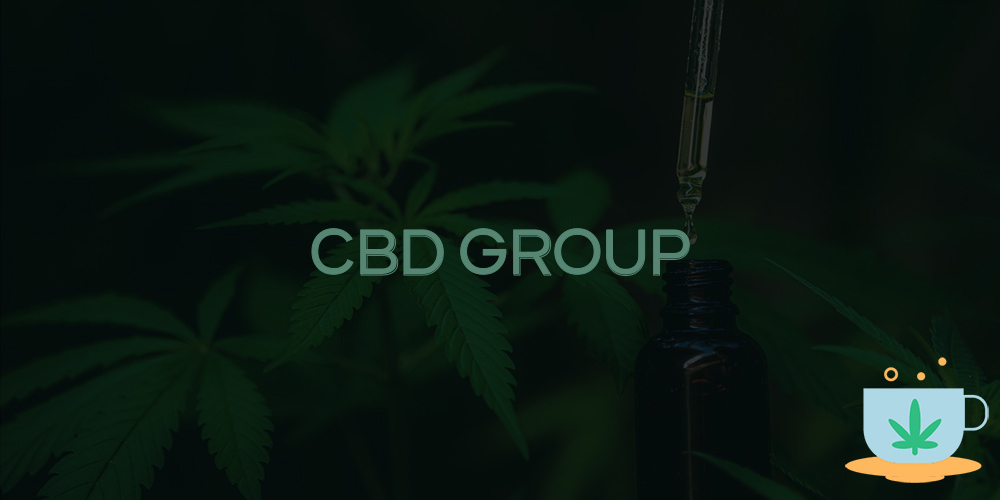In this post, we will delve into the fascinating world of CBD, providing you with a thorough grasp of its benefits and applications. We hope to provide a unique viewpoint on this topic by avoiding cliches and predictable terminology. So, let’s dive right in and explore CBD’s actual power together.

Understanding CBD Science: A Comprehensive Overview
Understanding the science of CBD requires delving into the deep nuances of how this molecule interacts with our bodies. CBD, or cannabidiol, is one of several cannabinoids contained in the cannabis plant. CBD, unlike its well-known sibling THC, does not have psychotropic characteristics. Instead, it has gotten a lot of interest because of its possible medicinal advantages. But how does CBD actually work?
CBD appears to interact with our bodies’ endocannabinoid system (ECS), a complex network of receptors and neurotransmitters distributed throughout our bodies, according to research. The ECS regulates a variety of physiological systems, including mood, pain perception, and immunological response. CBD is thought to alter the activation of these receptors, regulating neurotransmitter release and fostering ECS homeostasis.
Additionally, CBD has been shown to interact with non-endocannabinoid receptor systems such as serotonin and vanilloid receptors. This may contribute to its anti-inflammatory, analgesic, and anxiolytic properties. However, it’s crucial to highlight that the precise mechanisms of CBD’s activities are yet unknown, and more research is needed to properly understand its therapeutic potential.
Investigating CBD’s Various Applications for Better Health
As the popularity of CBD grows, so does the interest in its potential applications for benefiting health. CBD, or cannabidiol, is a chemical derived from the cannabis plant that has received a lot of interest due to its therapeutic benefits. While CBD research is still in its early phases, there is mounting evidence that it may be beneficial in a variety of health concerns. CBD has showed promise in improving people’s general well-being, from controlling chronic pain to lowering anxiety and fostering better sleep.
CBD’s usage in pain management is one of its most common applications. CBD has been shown in studies to have the ability to treat chronic pain by interacting with the body’s endocannabinoid system, which is in charge of regulating pain feeling. CBD’s anti-inflammatory qualities may also contribute to its pain-relieving effects. Many people who have arthritis, multiple sclerosis, or fibromyalgia have reported great pain relief after utilizing CBD products. Although additional research is required to completely comprehend the mechanisms underlying CBD’s pain-relieving qualities, its potential as a natural alternative to standard pain drugs seems encouraging.
CBD also has the potential to help with anxiety and promote mental well-being. Anxiety disorders impact millions of individuals worldwide, and traditional therapies can have negative side effects. CBD has been shown to interact with brain receptors related with mood regulation, potentially lowering anxiety and fostering tranquility. Several studies have found CBD to be effective in treating symptoms of social anxiety disorder, post-traumatic stress disorder (PTSD), and generalized anxiety disorder. While further research is needed to determine the ideal dosage and long-term benefits, CBD may be a viable option for people looking for natural therapies for anxiety-related disorders.
CBD Regulations and Policies: Navigating the Legal Landscape
The legal landscape surrounding CBD (cannabidiol) is complex and constantly changing. As the demand for CBD products grows, so does the need for clear legislation and standards. Navigating these restrictions, however, may be difficult for both consumers and businesses. Anyone interested in entering the CBD business or using CBD products must first understand the present situation of CBD legislation.
The legality of CBD at the federal level is mostly decided by the source of the substance. With the passing of the 2018 Farm Bill, CBD extracted from hemp, which contains less than 0.3% THC (the psychoactive ingredient in cannabis), became federally lawful. This means that CBD products derived from hemp are legal as long as specific standards are met. CBD derived from marijuana, on the other hand, which contains higher levels of THC, is still illegal under federal law.
While federal legalization of CBD derived from hemp was a huge step forward, individual states have the power to create their own restrictions. This has resulted in a patchwork of legislation across the country, with some states imposing more lax requirements than others. Businesses and consumers must get aware with their state’s specific regulations in order to assure compliance and prevent potential legal complications. It’s also worth noting that CBD regulations are subject to change as lawmakers cope with this nascent business.
Uncovering CBD’s Potential Side Effects: What You Need to Know
As the use of CBD (Cannabidiol) grows in popularity, it is critical to recognize the potential adverse effects of its ingestion. While CBD is usually regarded as safe and well-tolerated by the majority of people, it is not without dangers. Although research on the subject is still underway, a few negative effects have been observed in some situations.
Drowsiness or exhaustion is one of the most regularly reported CBD adverse effects. This is especially true while taking higher amounts of CBD. It should be noted that this adverse effect varies from person to person, and some people may experience increased alertness instead. Furthermore, CBD may interfere with certain drugs, especially those that are processed by the liver. As a result, before introducing CBD into your routine, it is critical to talk with a healthcare practitioner, especially if you are using other medications.
Another potential CBD adverse effect is dry mouth. CBD has been shown to reduce saliva production, resulting in a dry mouth. While this may not be a major worry for most people, it is critical to stay hydrated and drink enough of fluids when using CBD. Furthermore, CBD can drop blood pressure, which can induce dizziness or lightheadedness in certain people. If you have these symptoms, it is best to sit or lie down and get medical assistance as soon as possible.
This post has given you vital insights and knowledge on CBD’s potency We have developed a better grasp of CBD’s potential for boosting health and well-being by researching its different elements and benefits The paper emphasizes the necessity of studying CBD science, possible therapeutic applications, and the legal context around its use It also investigates the many types of CBD available and provides practical suggestions on how to incorporate it into daily living This essay, with its detailed yet short approach, offers as a trustworthy guide for anyone looking to harness the potential of CBD and navigate the ever-expanding domain of natural therapies The insights supplied are intelligently presented, allowing readers to make informed judgments about CBD use In conclusion, this article has provided a thorough explanation of the power of CBD, making it a wonderful resource for anybody interested in reaping the benefits of this increasingly popular natural supplement


